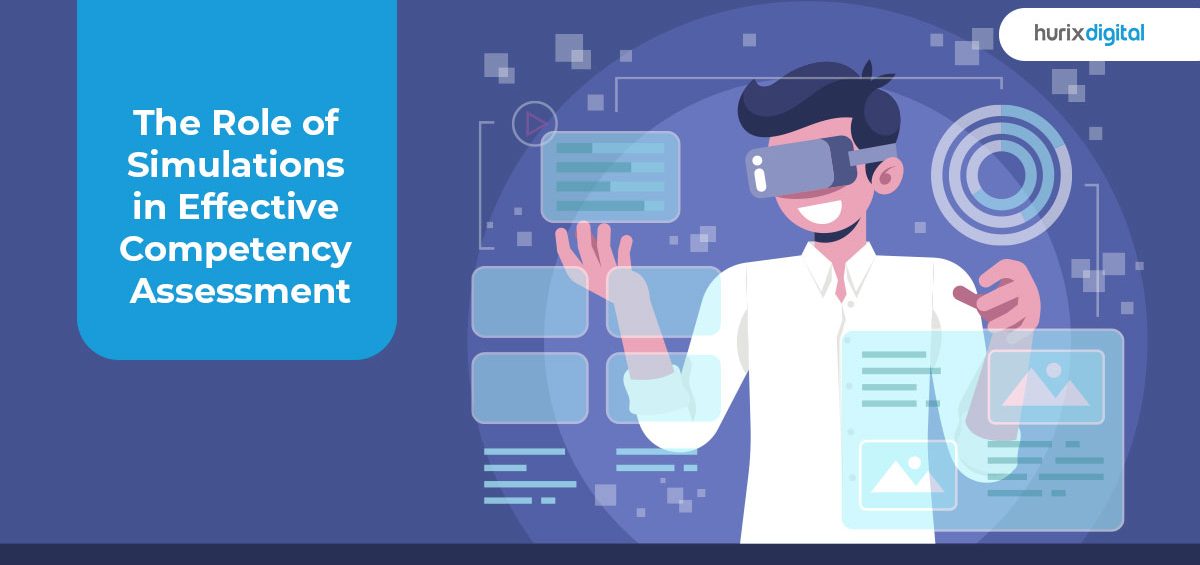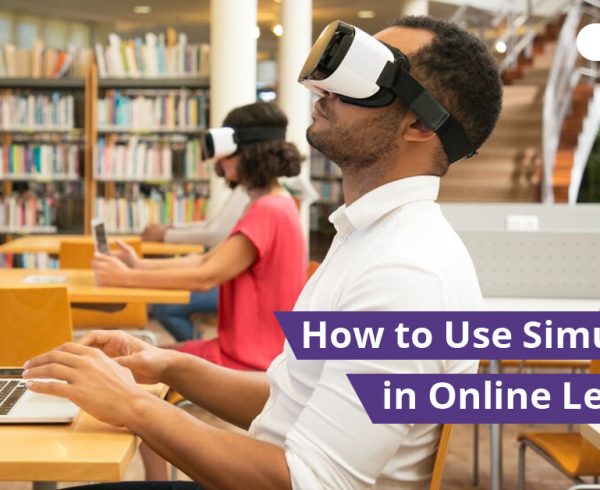In the rapidly evolving landscape of workforce learning and professional development, the need for effective competency assessment methods continues to be felt across industries. Traditional assessments often fall short when the goal is to evaluate the learners’ ability to use the acquired knowledge or skills on the job. This is where simulation-based assessment comes into play. The aviation industry was the first to adopt simulation assessments, using flight simulators to assess whether the trainee is ready to fly a real aircraft. Since then, simulation-based training and assessment have been widely used across industries, including healthcare, military, engineering, manufacturing, and customer service, to name a few. In this article, we will explore the role of simulations in effective competency assessment and provide examples of simulation assessment tests.
Table of Contents:
- Understanding Simulation-Based Assessment
- The Benefits of Simulation-Based Assessment
- Real-Life Applications of Simulation Assessment
- Conclusion
Understanding Simulation-Based Assessment
Simulation-based assessment involves creating realistic scenarios that mirror real-life situations and challenges. Learners are placed in these simulated environments where they can demonstrate their abilities, decision-making skills, and problem-solving capabilities. Simulations are a more accurate method of competency evaluation compared to objective-type tests or interviews. This is because as in real life, simulations require the learners to use their competencies to achieve the desired outcomes.
The Benefits of Simulation-Based Assessment
Here are some of the benefits of simulation-based assessment and learning:
- Authenticity and Realism
Simulations provide a controlled environment that can be designed to closely resemble the real environment learners may face in their professional roles, complete with inherent constraints and opportunities. This authenticity improves the validity and reliability of the assessment.
- Active Engagement
Simulation-based assessments promote active engagement by immersing learners in dynamic scenarios. They enable learners to actively apply their knowledge, skills, and critical thinking abilities, resulting in a more accurate representation of their competency levels.
- Scalability
Simulation-based assessments can be easily scaled to accommodate a large number of learners simultaneously. With advancements in technology, virtual simulations can be deployed online, allowing remote access and reducing logistical challenges. Besides being an effective method of assessing competencies, simulations are equally effective for training. The top two benefits of simulation-based learning are:
- Safe Learning Space
Simulations create a safe learning space for learners to experiment, make mistakes, and learn from them without real-world consequences. It encourages risk-taking and fosters a growth mindset, promoting continuous improvement.
- Immediate Feedback
Simulations provide instant feedback on learners’ actions and decisions, enabling timely reflection and targeted improvement. This immediate feedback loop facilitates the development of self-awareness and enhances the learning process.
Also Read: 6 Sales Training Simulations That Address Real-World Challenges
Real-Life Applications of Simulation Assessment
Listed below are some of the industries where simulation assessment has helped the workforce:
- Medical Training
Medical professionals can undergo simulation-based assessments to evaluate their clinical skills in high-pressure scenarios, such as emergency response situations, surgical procedures, or patient consultations. Simulations provide a safe environment to test their decision-making, communication, and technical abilities.
- Leadership Development
Simulation-based assessments can assess leadership competencies, such as strategic thinking, team management, and conflict resolution. Participants can be immersed in scenarios where they have to make critical decisions, manage a team, and navigate complex organizational challenges.
- Customer Service Training
Simulations can assess customer service skills by presenting learners with various customer interactions. Participants can demonstrate their ability to handle challenging situations, resolve conflicts, and deliver exceptional service.
- Engineering and Manufacturing
Simulation-based assessments can evaluate engineering and manufacturing competencies, such as designing, troubleshooting, and optimizing processes. Learners can engage in virtual simulations that replicate real-world scenarios, allowing them to showcase their technical skills and problem-solving abilities.
Also Read: Simulation Training: 7 Ways to Leverage it Across Various Industries
Conclusion
The simulation-based assessment offers a powerful approach to evaluating learners’ competencies in authentic, real-world contexts. By immersing learners in dynamic scenarios, simulations provide a comprehensive evaluation of their skills, decision-making abilities, and problem-solving aptitude. The benefits of simulation-based assessments include authenticity, active engagement, immediate feedback, and scalability. As the world continues to embrace simulation-based learning, the role of simulations in effective competency assessment will only grow in significance, revolutionizing the way we assess and develop skills in various fields.
Need help with assessing specific competencies in your organization? Choose Hurix Digital and we’ll help you decide whether to opt for a simulation-based assessment.
Get in touch with us today!







